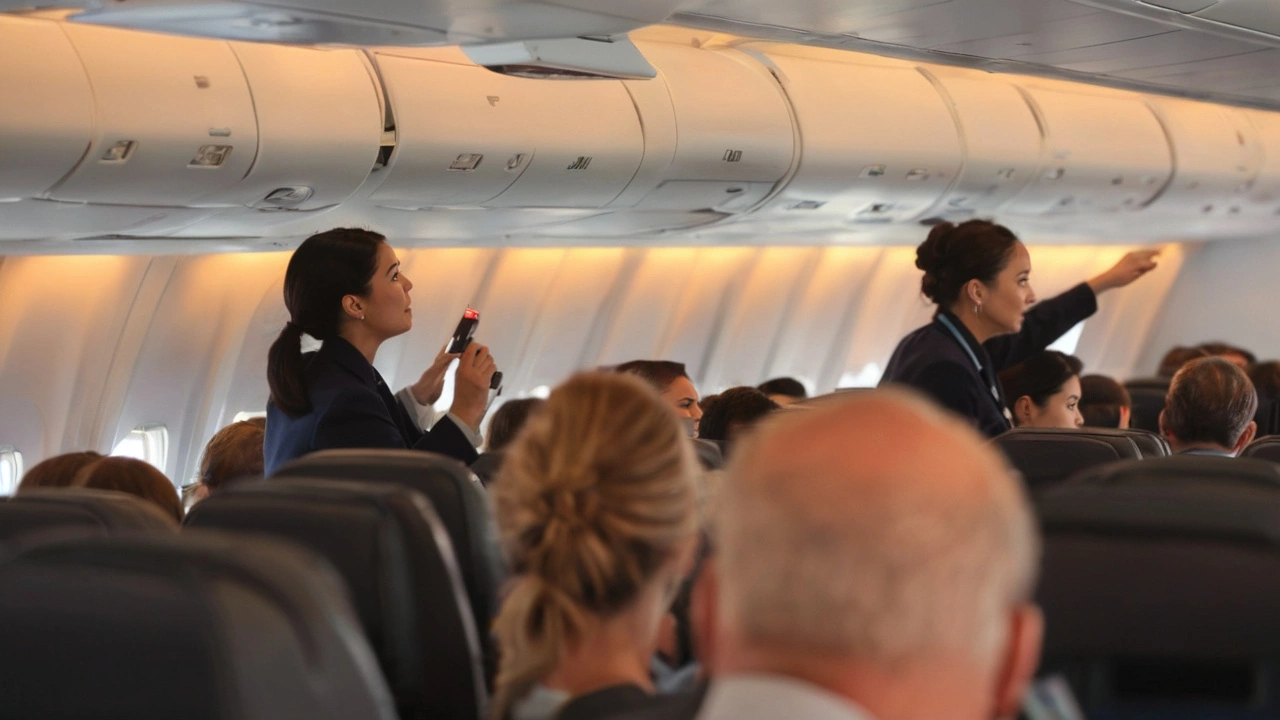Airline Delay Guide: What’s Happening, Why It Happens, and How to Fight Back
If you’ve ever stared at a gate screen that says "Delayed" for hours, you know the frustration. Delays can turn a quick trip into an all‑day ordeal, but knowing why they happen and what you can do makes it less painful.
Why Flights Get Delayed – The Real Reasons
Most airlines blame weather, crew shortages, or technical glitches. Bad weather is the easiest to understand: storms, fog, or strong winds can ground planes safely. Crew issues pop up when pilots or flight attendants exceed their legal working hours and need rest. Technical problems range from a faulty sensor to a delayed part that needs replacement.
Air traffic control (ATC) congestion is another hidden culprit. Busy airports often have limited runway slots, so if one plane runs late, the whole schedule shifts. Even a small hiccup can snowball into hours of delay across multiple flights.
Your Rights When a Flight Is Late
Most regions have rules that protect passengers. In the EU, Regulation 261/2004 guarantees compensation for delays over three hours on long‑haul flights, unless it’s an extraordinary circumstance like a volcanic eruption. The US doesn’t have a blanket rule, but airlines must provide timely updates and may offer vouchers or refunds if they cancel.
In South Africa, the Civil Aviation Authority follows similar consumer protection standards, requiring airlines to assist with meals, accommodation, or rebooking when delays exceed two hours on domestic routes. Always ask for a written statement of your delay – it’s essential when filing a claim later.
Tip: Keep all receipts for extra expenses (food, transport, hotel) and note the exact departure time shown on the board. This evidence speeds up compensation requests.
How to Reduce the Pain of an Airline Delay
First, stay informed. Use flight‑tracking apps like FlightAware or airline push notifications – they often update faster than airport screens. If you see a delay early, call the airline’s customer service before you reach the gate; they may rebook you on another flight without extra cost.
Second, pack smart. Bring snacks, a water bottle, and a power bank so you’re not stuck waiting for overpriced airport food or dead devices. A good read or downloaded movie can turn a long wait into chill time.
Third, know the lounge options. If you have a credit card that grants lounge access, use it. Lounges usually provide comfortable seating, Wi‑Fi, and free refreshments – a huge upgrade from crowded terminals.
Getting Compensation – Step by Step
Start with the airline’s own claim form on their website. Fill in flight details, delay length, and attach receipts. If they reject your request or offer too little, move to a third‑party claims company or file directly with the relevant aviation authority.
Most successful claims fall into two categories: monetary compensation (e.g., €250‑€600 under EU rules) and reimbursement of out‑of‑pocket costs. Remember, the airline can argue “extraordinary circumstances” to avoid paying – that’s why documentation matters.
Finally, be polite but firm. A courteous tone often gets better results than an angry rant, and you’ll keep a clear record if you need to escalate later.
Airline delays are annoying, but they don’t have to ruin your travel plans. Stay informed, know your rights, and act fast – then you can turn a setback into just another story to share on the next trip.

Air Canada Flight Incident: Crew Member Loses Temper Over Blanket Request, Leading to Flight Cancellation
Jul 31, 2024, Posted by Ra'eesa Moosa
An Air Canada flight was canceled after a heated altercation between a flight attendant and a passenger who requested a blanket. The incident escalated with the crew member threatening to remove passengers and calling the police. Air Canada has apologized and promised compensation for the inconvenience.
MORE